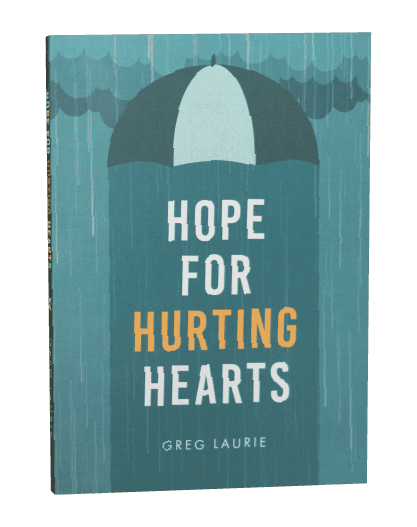In his book “A Nation of Victims,” Charles Sykes wrote, “For many Americans, the politics of victimization has taken the place of more traditional expressions of morality and equity.” He went on to quote an article from The Economist, which said of Americans, “If you lose your job, you can sue for the mental distress of being fired. … If you drive drunk and crash, you can sue somebody for failing to warn you to stop drinking. There is always somebody else to blame.”
Why is that? I think one of the problems is that as a culture, we’ve bought wholesale into psychology. What concerns me is there are some people in the church today who know more about self-esteem than about self-denial. They know more about inner healing and getting in touch with their inner child than about outward obedience.
So what is the source of our problems? Is it the fault of others? Is it low self-esteem? Is it our family? Is it our culture? Or, is there someone else to blame?
In his New Testament epistle, James gave us the answer. He posed a passionate rhetorical question: “What is causing the quarrels and fights among you?” He answers it with a second rhetorical question that gets to the very heart of the subject: “Don’t they come from the evil desires at war within you?” (James 4:1 NLT).
James is asking, “Where are your problems coming from? What is the source of your problems?” His answer, effectively, was that it comes from ourselves. It comes from our desire for pleasure.
Really when you get down to it, this is the source of all conflict in life, for the most part: conflict in the church … conflict in the home … conflict in the workplace … and really, even conflict abroad, among nations. It comes down to what James was identifying.
James used a key word that gets to the heart of the matter: desires. In the Greek language, it’s the word hēdōnē, from which we get the English word hedonism. Hedonism, of course, is the basic belief that pleasure is the chief good in life and that one should essentially live for pleasure.
Understand, the Bible is not saying that it’s wrong to desire pleasure in life, because there is pleasure that certainly comes from many good things. Pleasure can come from our relationship with God himself.
In Psalm 16:11, which is speaking of God, we’re told, “You will show me the way of life, granting me the joy of your presence and the pleasures of living with you forever” (NLT). There is certainly pleasure in knowing God, and the Bible speaks often of the joy of the Lord and the true happiness that comes from God. We Christians can experience the greatest pleasure in life from knowing God and walking with him.
I can know with complete confidence that if God tells me to stay away from a certain thing, then it’s for my own good. I don’t have to think of the Lord as some celestial spoilsport but as a loving heavenly father who is only looking out for my own benefit.
James is speaking of those who are making pleasure the driving force of their lives, those who live for pleasure. We are a pleasure-mad society, aren’t we? Entertainment is exploding as never before. People are spending billions of dollars just to be dazzled and keep themselves occupied. They live for entertainment. They can’t seem to get enough of it.
In the parable of the sower, Jesus described the seeds that fell among weeds as those who were choked by life’s pleasures. Titus 3:3 refers to those who are enslaved by all kinds of passions and pleasures. And Peter speaks of those who are spots and blemishes, reveling in their pleasures (see 2 Peter 2:13).
This is the same idea James was bringing up. He was speaking of people who are on a feverish search for their own pleasure and gratification.
If this becomes the focus of your life, conflict will result. Why do these things war in our souls? Because the flesh wars against the Spirit, and the Spirit wars against the flesh. These two are contrary one to another, the Bible says (see Galatians 5:17). So the battle comes from this conflict within, where we want our own way. We want pleasure. Yet we know there is something higher and better. Thus, friction develops.
The pursuit of pleasure rarely brings what we’re searching for. Instead, it brings a certain emptiness. It’s been said that the best cure for hedonism is an attempt to practice it. Anyone who has gone after this mad pursuit for pleasure would admit, if they were honest, that it’s an empty pursuit.
Solomon, who tasted just about every pleasure this world has to offer, wrote, “I said to myself, ‘Come on, let’s try pleasure. Let’s look for the “good things” in life.’ But I found that this, too, was meaningless. So I said, ‘Laughter is silly. What good does it do to seek pleasure?’” (Ecclesiastes 2:1–2 NLT).
If we live with this purpose in life, this drive for pleasure, it will create conflict. The problem is ourselves. This is what makes us uncomfortable. We want to blame our parents. We want to blame our teachers. We want to blame anyone or anything.
What we don’t want to do is recognize that we are the problem. We don’t want to say, “The reason my marriage is hurting is because I am the problem. I’m selfish and think only of myself.” We don’t want to say, “The reason I’m having conflict at work is because I’m self-centered,” or “The reason I’m having conflict in my church is because I’m being selfish.” We always want a scapegoat. It’s uncomfortable to come face-to-face with the truth.
Before you can change, you need to know the truth. It’s time to stop blaming everyone and everything and realize the problem is self. Here’s what it comes down to: The ultimate choice in life is between pleasing yourself or pleasing God.
Taken from my weekly column at World Net Daily.

Did you pray with Pastor Greg?
To help you get started, we would love to send you a free Bible and other resources to help you grow in your faith.
Get Resources
In thanks for your gift . . .
In times of grief and loss, Jesus offers comfort and healing. Receive Greg Laurie’s Hope for Hurting Hearts and discover how to navigate life’s toughest moments with hope.
Support today!



